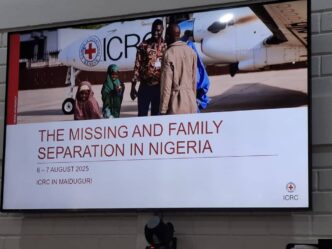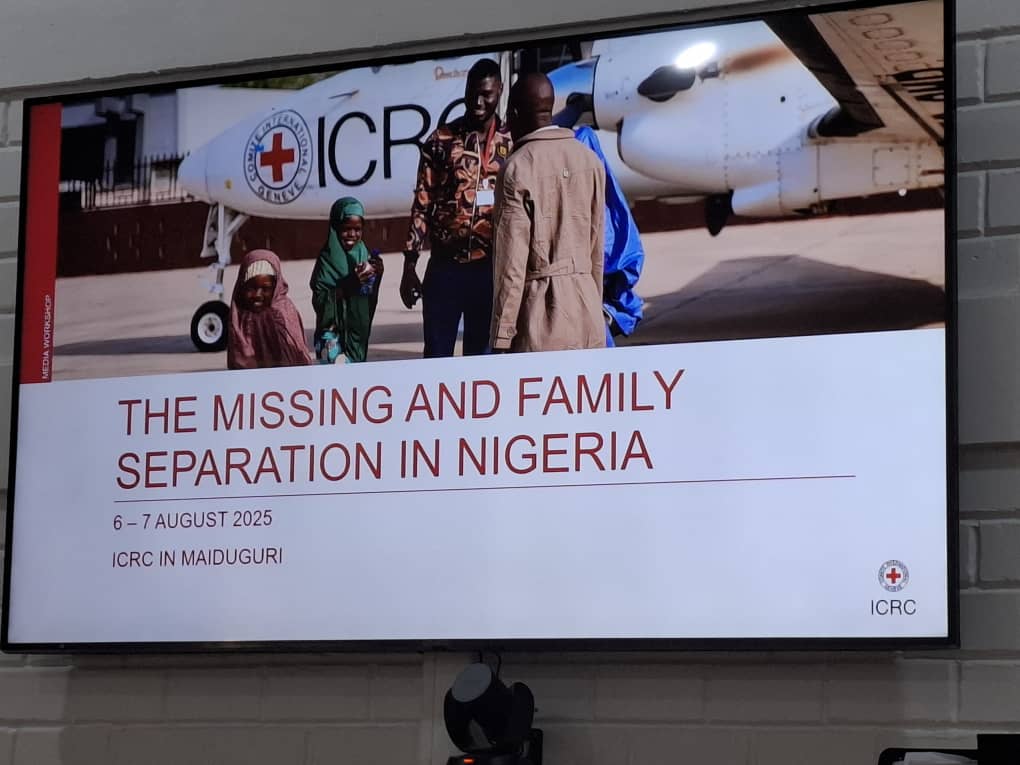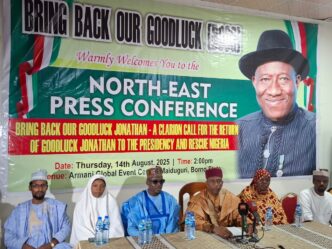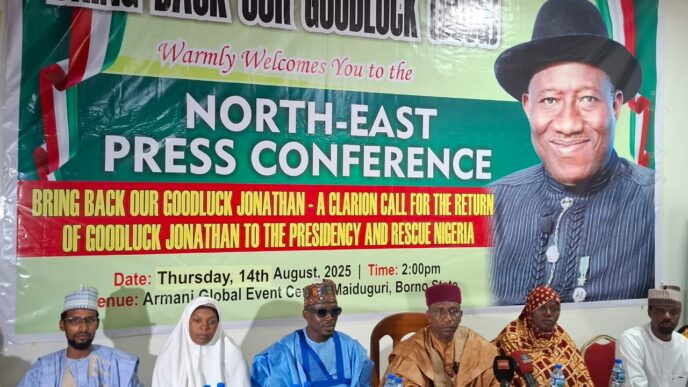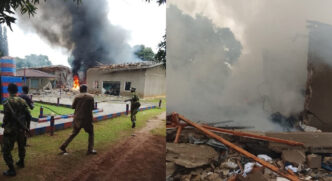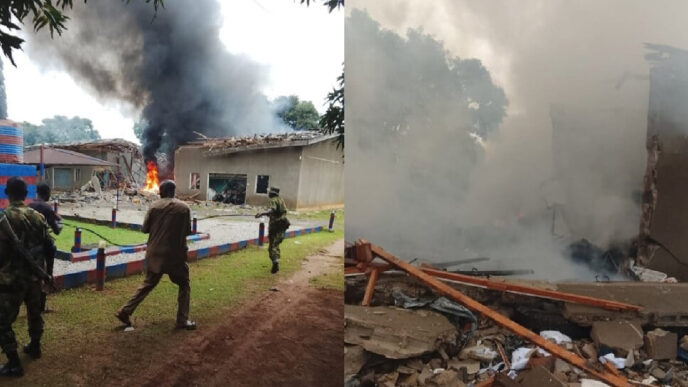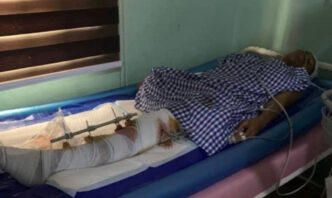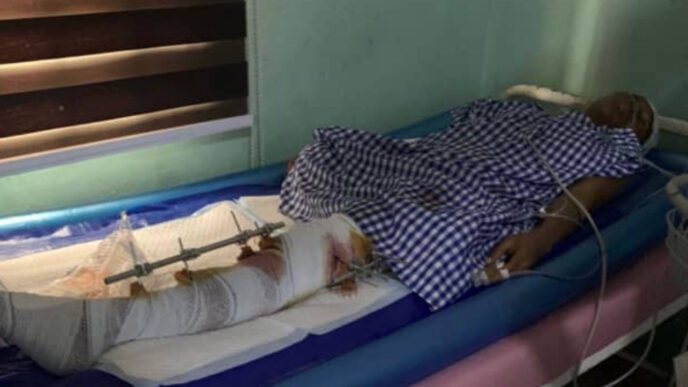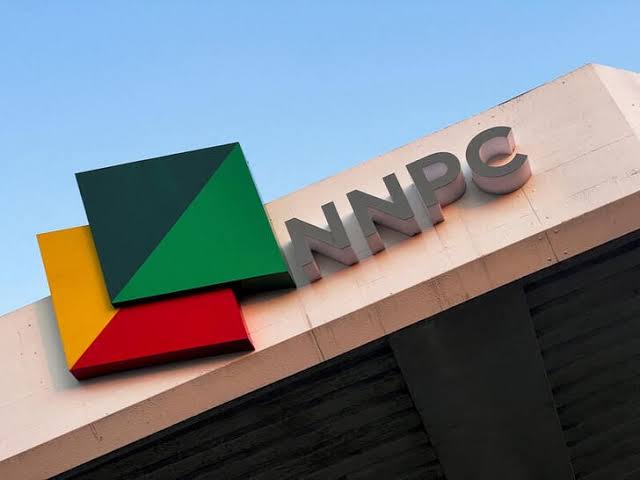By Gbenga Akingbule
Terror struck Bama town as suspected Boko Haram terrorists launched a deadly attack. Chaos erupted, and residents scrambled for safety. In the midst of the mayhem, Yakubu Kankara (not his real name ) became separated from his parents while fleeing the hail of bullets.
Gatekeepers News reports that Bama, due to its large size, prides itself as the only Local Government Council with two state constituencies (having two House of Assembly Members) in North East Borno State – a state that is battling 16 year old Insurgency where many had been killed, properties distroyed and many residents including women and children reported missing.
As the parents of Kankara made their way through bush paths to a safe zone within Borno State, the International Committee of the Red Cross (ICRC) Officials were on the ground at one of the Internally Displaced Persons (IDPs) camps to receive them and other survivors.
It was at this point that Kankara was reported missing by his parents while they looked up to ICRC with the hope of helping to determine the fate of their beloved child, whether dead or alive. The ICRC, in their usual routine, swung into action, collecting relevant details of Kankara, which include his name, age, the last separation point, clothes he was wearing at the time of separation, among others.
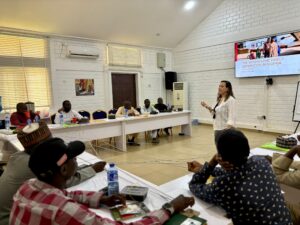
Thanks to an ICRC phone call, Kankara’s parents’ information matched records of their unaccompanied son, who had arrived at a distant IDP camp alongside other Bama attack survivors.
At an ICRC-organized Media Workshop on the Missing and Family Separation in Nigeria, held in Maiduguri the Borno State capital recently, Kankara’s reunion story as stated by Fatima Sai’d, Protection of Family Link (PFL) Focal Person for Nigeria Red Cross Society (NRCS) Borno Branch, exemplifies one of the many successful family reunifications facilitated by the ICRC.
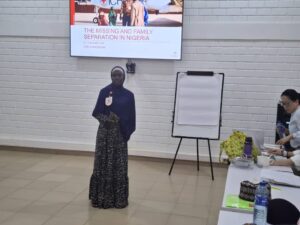
In the last five years alone, the ICRC have reunited a total of 44 persons in Borno State, with the breakdown as follows: Year 2020 – 8, 2021 – 2, 2022 – 7, 2023-7, 2024- 11 and 2025, as at July, stood at 9.
According to a presentation at the workshop by Maria Angélica Mirabal Toscano, ICRC Protection of Family Links Team,” ICRC has registered since 2014 around 24,000 cases related to the conflict.
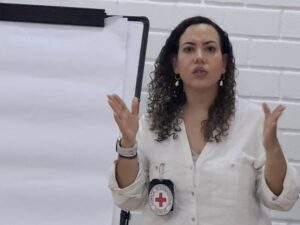
“Around 20,000 cases are registered abroad to search in Nigeria. 56% were children by the time of their disappearance. North East of Nigeria has around 16,000 registered cases, most of the cases were registered in 2014-2015 (71%). In Borno, we have around 9000 active cases.”
Despite the herculean task in reuniting families over the past five years, the ICRC remain concerned about the alarming 9000 active cases of missing persons in Borno State. The organisation is now calling on the authority in the state to rise to its responsibility towards addressing the issue
The ICRC emphasises the importance of protection of family links, stressing that authorities must uphold their obligations under International Humanitarian Law to prevent disappearances and separations.
Diana Japaridze, Head of ICRC sub-delegation in Maiduguri, said, ” Preventing separations, locating missing people, reconnecting families and supporting them while they search for their loved ones have been a very important part of what we do with the Nigerian Red Cross Society in order to relieve the suffering of those affected by conflict.
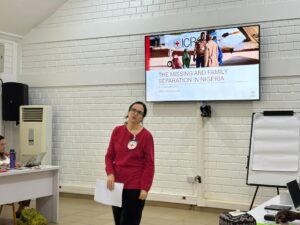
“In the chaos of armed conflict, situations of violence and disasters, families can become separated in a matter of minutes, creating anguish and vulnerability and sometimes leading to long years of uncertainty about the fate of children, spouses or parents.
“Due to the protracted conflict and violence in Nigeria, too many people are missing loved ones, with our caseload of those lost being the highest in Africa. Some people spend years searching for loved ones, often with no result. Families have a right to know their fate,” Japaridze said.
With Bama Local Government, where Kankara went missing, having the highest caseload of around 5000 missing persons according to ICRC, there is no doubt that the 16-year Boko Haram insurgency has left a negative impact on the people who are currently rebuilding their communities that are accessible.
The visit by the ICRC to Kankara and his family members in their new location has further assisted the family to heal and put behind them the trauma of family member separation due to armed conflict being carried out by Boko Haram terrorists.
“We don’t just leave the people after a successful reunion, we visit them to see how they’re doing and support them ” Maria Angélica Mirabal Toscano said.

